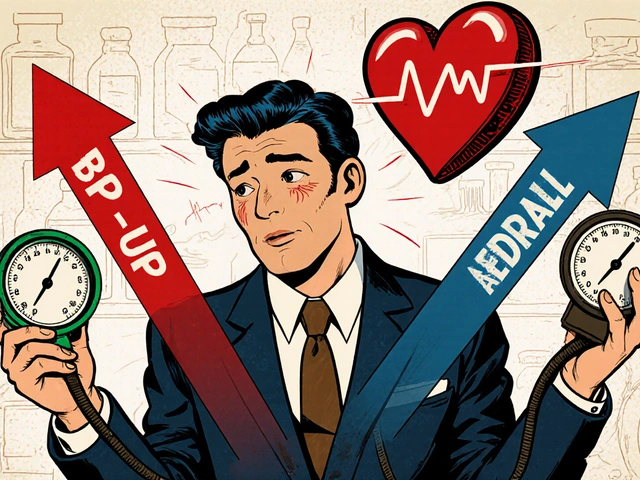Clozapine: Essential Guide to This Powerful Antipsychotic
If you or someone you know has treatment‑resistant schizophrenia, clozapine might have come up in the conversation. It’s not a first‑line drug, but for many it’s a game‑changer. Below you’ll find the basics—how it works, why doctors choose it, and what you need to watch out for.
How Clozapine Works and When It’s Prescribed
Clozapine belongs to the atypical antipsychotic family. It blocks dopamine receptors more subtly than older drugs, which helps calm hallucinations and delusions without causing as much movement trouble. Doctors usually reserve it for people who haven’t improved after trying at least two other antipsychotics.
Besides schizophrenia, clozapine reduces suicidal thoughts in some patients and can calm severe aggression. Because it targets multiple brain pathways, many users notice a smoother mood and fewer spikes of anxiety compared with other meds.
Managing Side Effects & Dosage
The biggest catch with clozapine is the need for regular blood tests. It can lower white blood cells (agranulocytosis), a condition that can become life‑threatening if missed. Most countries require weekly blood counts for the first six months, then every two weeks, and finally monthly if everything stays normal.
Typical starting doses are 12.5 mg once or twice a day, slowly ramped up to the target range of 300‑450 mg daily. Some patients need up to 900 mg, but the doctor will adjust based on response and side‑effect tolerance. Take the dose in the morning and evening with food to reduce stomach upset.
Common side effects include drowsiness, drooling, constipation, weight gain, and a slight rise in blood sugar. A smaller group may develop a fast heartbeat, low blood pressure when standing, or rare heart inflammation (myocarditis). If you notice fever, chest pain, or a sore throat, call your doctor right away.
Tips to make clozapine easier:
- Stay hydrated and eat fiber‑rich foods to combat constipation.
- Track any changes in mood, sleep, or appetite and share them at each appointment.
- Never skip a blood test—most labs now offer quick finger‑stick checks.
- Ask about nicotine use; smoking can lower clozapine levels, so your dose might need tweaking if you quit.
When you’re feeling stable, many people find they can cut back on other meds. Always involve your prescriber in any changes; abrupt stops can cause withdrawal symptoms.
Overall, clozapine isn’t a casual pill—it needs commitment to monitoring, but for those stuck in a treatment dead‑end, it often brings the relief that other drugs miss. Talk openly with your healthcare team, stick to the blood‑test schedule, and you’ll give yourself the best shot at a steadier life.

Clozapine and Neuroleptic Malignant Syndrome: Spotting the Warning Signs
- By : Tamsin Riverton
- Date : Aug 12 2025
Learn how clozapine can trigger neuroleptic malignant syndrome, recognise early warning signs, and manage the emergency with practical guidance.




